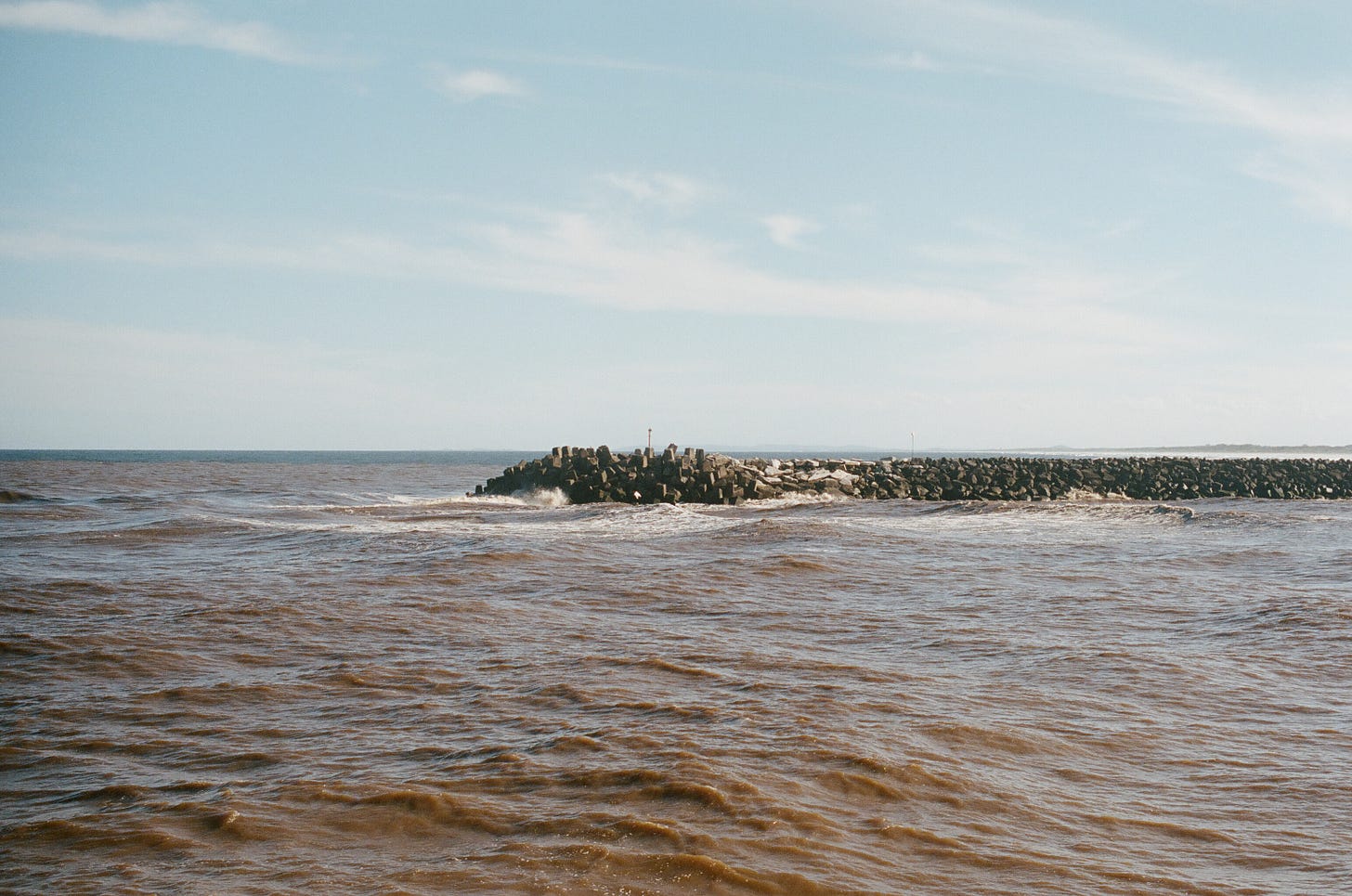Earlier this year I arrived home from a restorative trip to my second home of Tasmania. Our final days were spent walking in the vast, wild mountains of the southwest of the island and swimming with my wonderful partner in the upper reaches of one of the last wild rivers to flow across this continent - the mighty Franklin.
On the Monday I went back to work. Without much warning I was thrust into the middle of a river gasping for air; literally suffocating before my eyes. For days on end I drove back and forth across a floodplain suffering under the weight of a exploited history. The probes that measured the water quality reflected catastrophic patterns of numbers but they could never tell the full story of what it is to watch a river dying in slow motion; plagued by the cancer of indifference.
I am currently reading Is a River Alive? by British author Robert MacFarlane. Strangely enough, Rob emailed me the day after I learned of my father’s death, to share some words and inform me that me, and my organisation - Revive the Northern Rivers - would be included in the acknowledgements of Is a River Alive? when it was eventually released in May of this year. It was incredibly wonderful and humbling news delivered in the worst week of my life. The universe works in funny ways…
In the introduction to the book Rob touches on a story I have come to know to well. He says,
“If you find it hard to think of a river as alive, try picturing a dying river or a dead river. This is easier. We know what this looks like. We know how it feels.”
He goes on to talk about how words make worlds,
“In English, we ‘it’ rivers, trees, mountains, oceans, birds and animals: a mode of address that reduces them to the status of stuff…I prefer to speak of rivers who flow and forests who grow.”
—
The loss of my father has changed the way I relate to the rivers that flow through my life. Through acknowledging the power, pain and redemptive nature of grief I have reframed the way I see rivers; I have learned how to mourn them. This is not to say that I don’t still experience wonder, beauty and awe in my life around rivers. Not two weeks ago I paddled a stretch of river that, by almost every metric, is in dire straits. But the kingfishers that flittered past the front of my canoe seemed reasonably ambivalent as they swooped in to pluck bait from the surface of the water. And the giant water gums that buttressed the banks and towered up over the channel to provide shade for the water below have bore witness to changes so grandiose and destructive that I could only begin to imagine what they have seen.
Unlike many across the world, I am lucky to have rivers close by that are not dying but instead thriving. There is a river not so far from here where I am able to glimpse what is possible; how a river should flow and the vivid face of life that exists in a place where Europeans - for a number of reasons - left relatively unscathed. Standing on the banks of this river, floating along her, being fed by her, is a redemptive experience in and of itself. It rejuvenates me before I return to the task of trying, however futile it sometimes feels, to heal my home river.
Today, I read a comment from an Instagram post from Rob Macfarlane. In it, he asked people a question:
“Who are your rivers? The rivers who run through you as surely as they run through places?”
to which someone responded,
“I used to have a thought that comforted me in dark moments of mental illness. Rivers still flow at night. They are still moving through the darkness. Made me feel that I could too.”
—
Is a river alive?
Yes, most definitely
Can we grieve her?
If you know her well enough, and she is dying before your eyes, I think you’re left with little choice.
This morning a fellow Riverkeeper spotted dolphins in my home river for the first time since the blackwater event that resulted in the end of millions of aquatic lives. They have returned to the scene of the crime as victims of history, having survived against the odds.





Hello Tom, which rivers nearby are thriving? They must be high in the mountains away from farming.